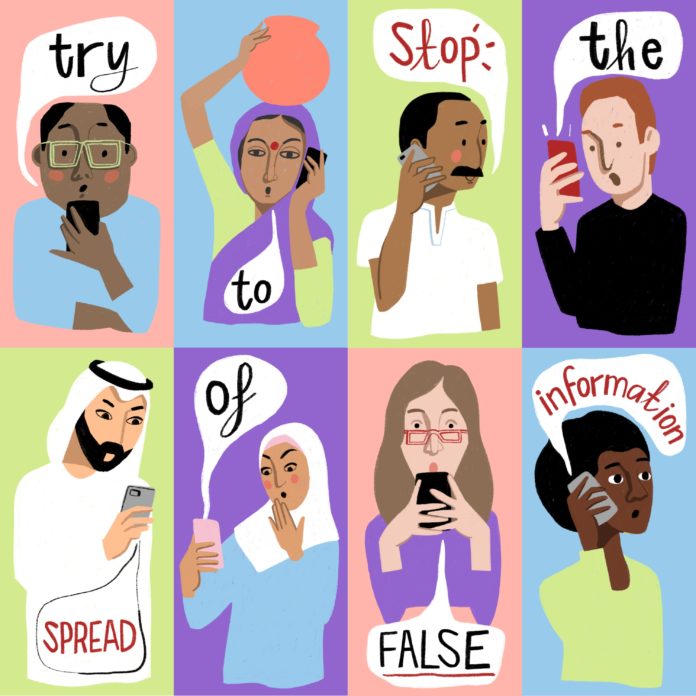Imagine speeding down a busy avenue as the passenger in a vehicle. The driver of your car, distracted and fussing with their phone, races through a red light. You could see the oncoming traffic at the intersection well ahead of time, but your driver does nothing to avert the accident. The oncoming traffic slams into your car.
Living through the ongoing COVID-19 pandemic, and the subsequent “new normal,” has become just that – but this a car crash that happens in extremely slow motion.
And just like a car crash, our senses are being overwhelmed. Instead of flying shrapnel and broken glass – we are exposed to a flurry of images and commentary. From the repeated appearance of the spiked golf ball image of the virus itself, to images of overwhelmed hospitals and morgues, to the opinions of everyone you know and every celebrity you follow – bits and pieces of the pandemic ricochet everywhere.
Like a real-life episode of The Twilight Zone or Black Mirror, what we are going through is something novel for the human experience.
Starting with the early reports of outbreaks in Wuhan and as the virus spread to the rest of China, experts began to sound the alarm.
Even though the outbreak was still mostly limited to China, experts warned 70 percent of the world may end up infected. Due to lukewarm policy responses and the inability to take the situation by seriously by many world leaders, the outbreak spread outside of China to South Korea. And then to Iran. And then to Italy. And then to the U.S. Today, every country in the world except for two have reported at least one case.
Living through a pandemic is much different than living through other natural disasters. Pandemics happen over the course of several months, or even years. Other natural disasters like hurricanes and tornados, while devastating, happen in relatively short windows and then recovery efforts can begin.
Hurricanes and tornados are localized, while pandemics exist everywhere.
It is important to acknowledge that pandemics are not the only slow-motion disasters that people have and do experience. War, famine, drought, and others certainly apply as well. And of course, this is not the first pandemic that humanity has faced.
What makes the COVID-19 Pandemic different from other slow-motion disasters, and pandemics of the past, is the combination of living through such a disaster while being consistently bombarded with new, and often alarming, information.
From here in Austin, to the original epicenter Wuhan, throughout Europe, down to Sub-Saharan Africa and across to South America – the anxieties are the same. How will this virus endanger our loved ones? How will this prolonged crisis cripple our livelihoods? Do we have the leadership in place to correctly guide us to the other side?
Nearly every human being on earth is going through the same thing at once.
It is a challenge to think of the last time this was true, if ever. Perhaps global anxieties during the Cuban Missile Crisis? Or World War II? Or the 1918 flu pandemic? But even these events did not touch every corner of the globe the same way that COVID-19 is right now, and obviously took place long before media consumption became what it is today.
As the virus spread in the early months of 2020, news reports and related Internet traffic surged as well. Nearly every news source, in every country, at every level has focused a large majority of its coverage effort to this topic.
To illustrate – the Coronavirus subreddit had only 38,098 subscribers when the calendar hit February. When it turned to March, the subreddit had 171,733 subscribers. Throughout March, the subreddit became the fastest growing, including weeks that nearly 400,000 new subscribers joined. As of this writing, the subreddit boasts over 2 million subscribers, and hundreds of unique articles from all over the world are posted to the forum every day.
As the pandemic and related media coverage accelerated, many of us became more physically isolated.
Aside from essential workers encountering the pandemic on the front lines, daily routine for many has turned much more monotonous. People working from home, those fired or furloughed from their job, students who have their school closed, and especially seniors experiencing the strictest of protective measures are distanced from one another like never before.
Meanwhile the news cycle rages 24/7 with the imminent collapse of many aspects of society that were often taken for granted.
Everything seems to happen every day, but at the same time, nothing happens. This tests our patience, and this tests our ability to cope with the situation the longer that the pandemic goes on.
Mitch Albom, writing in an article for the Detroit Free Press points out how ill-equipped American culture is to handle these circumstances:
“We are facing a new silent enemy. One that could take us down quickly.
It is not COVID-19.
It is our patience.
Americans are not a patient people. Our news cycle is 24 hours; a big story, 48 hours. We get bored with long reads. We’re making movies in 10-minute increments. Our president communicates in tweets.
We want things fast, now, and over.”
There are two ways in which this stress is particularly compounded.
First – most people do not possess the scientific foundation necessary to grasp the numerous complicated aspects of the pandemic. Understanding how exponential growth occurs, how the virus attacks the human body, and how this virus threatens society – to name a few examples – are not simple topics. Even for experts, coming up with an effective response to the multi-dimensional nature of the pandemic is an immense challenge
Second, it is difficult for the average person to absorb so many alarming stories daily. A few examples of recent stories include strokes in young people, possible reinfection of recovered patients, the virus mutating into more lethal forms, threats to our children, and even our pets. Conclusive scientific findings on any of these topics will take a significant amount of time. But with summer approaching and the pandemic’s end nowhere in sight, the sense of urgency to resolve everything within the human mind increases.
This is not to admonish any news source for reporting on these issues. They serve a critical function in keeping the public informed about how the pandemic is developing. But to digest this amount of terrifying information is not something that are brains are well-equipped to process.
Naturally, our brains seek to resolve these anxieties with some sort of answer. Often what we try to do is take all this complex, overwhelming, and frightening information and find a way to compartmentalize it into a neat and easy to understand box. Unfortunately, this creates an environment ripe for conspiracy theories.
Accelerated by the emergent amateur journalism sector and blogs – from the recent social media sensation “Plandemic”, to theories about 5G towers and Bill Gates – conspiracies are an increasingly prevalent part of our daily discourse about the pandemic.
Frankly, it is understandable that people seek conspiracies when the explanations from experts and policymakers seem overly convoluted or incomplete. The idea that a puppet master is orchestrating world events brings a sort of comfort that the true chaos of our world cannot provide, especially in times of widespread tragedy.
This epoch that we are going through is a truly novel experience for humanity. Never have we collectively experienced a slow-motion car crash, never have we been bombarded with so much information about a single topic, and never have we been so physically and socially isolated from one another.
The way that we consume media is going to change. The way we interact with each other is going to change. And while much of the future is out of our hands, it is critical to take a step back and consider what we can control.
We can try to exercise patience and kindness with one another, and practice civility when debating the many controversial policy decisions that lie ahead. And most importantly, we must remember that as strange and scary as this experience is for all of us on the individual level, we are not alone. Perhaps like never before, we are all in this together.
If you like what you’ve been reading, please click here to subscribe and we will send you updates and our newsletter.






